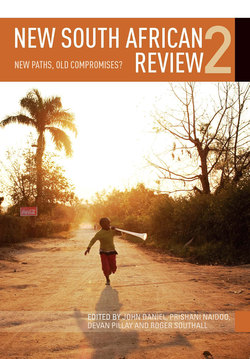Читать книгу New South African Review 2 - Paul Hoffman - Страница 29
На сайте Литреса книга снята с продажи.
EVIDENCE FOR THE ZANUFICATION THESIS
ОглавлениеIn one respect, it is an indictment of the post-apartheid government in South Africa that such a question is posed at all. When Mandela left office in June 1999, South Africa’s global standing was high on account of the (relative) peacefulness of its transition to democracy, its discourse of racial reconciliation, and its apparent determination to act as an evangelist for democracy on the African continent. Much, if not all, of that reservoir of goodwill was drained away during Thabo Mbeki’s presidency. At no stage – either at home or abroad – did Mbeki command the same aura or inspire the same confidence as Mandela, despite, paradoxically, his superior administrative skills as a head of government.
There were many reasons for this – principally his less accessible personality, the more conspiratorial and secretive political culture he fostered, and his enthusiasm for a highly centralised, top-down style of government (Hamill, 2001). All of this would ultimately sow the seeds of his demise, as he was removed first from the ANC presidency in December 2007 and then from the state presidency in September 2008. Internationally, Mbeki had initially been received favourably as a key figure in the so-called ‘new generation’ of African leaders who seemed to understand what was required to rescue the continent from its position on the margins of international politics. This ‘new generation’ had at least mastered the post-Cold War vocabulary of political and economic change, even if their commitment to its substance was yet to be tested. As Mandela’s deputy president, Mbeki had championed an ‘African renaissance’ – central to which was a commitment to clean, open and democratic government – and had spoken of wresting control away from ‘petty tyrants who would be our governors by theft of elective positions’ (Mbeki, 1998).
In his first two years in office as president, he played a major part, alongside the British prime minister Tony Blair, in constructing the New Partnership for Africa’s Development (Nepad), a development contract with the West in which good government, transparency and democratisation were core elements. This was followed in 2002 by the establishment of the African Union (AU), the successor to the widely discredited Organisation of African Unity (OAU). Mbeki was one of the AU’s principal architects and he served as its first chair with a more robust – although at this stage still largely theoretical – commitment to democratic governance and a more critical attitude towards the traditional axioms of state sovereignty and non-interference. Here was a leader who seemed attuned to the new post-Cold War orthodoxies and who sought to steer South Africa in particular, and Africa in general, towards a pragmatic accommodation with them. This was evidenced by his pivotal domestic role in fashioning the Gear strategy introduced in June 1996, a more conservative macroeconomic framework and one which was an anathema to the ANC’s formal allies, the Congress of South African Trade Unions (Cosatu) and the SACP. This did not make Mbeki an unconditional enthusiast for neoliberal globalisation, as was sometimes charged. It, rather, portrayed him as a reformist globaliser who broadly accepted the prevailing nostrums of globalisation while acknowledging the continuing importance of the state. He also sought the restructuring of the political and economic institutions of global governance to give greater weight to the voice of the global South, and of Africa in particular.
